Newsbeat's guide to... the UK leaving the EU
- Published
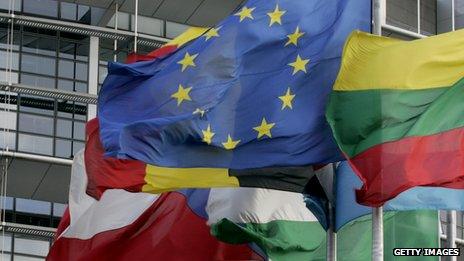
Prime Minister David Cameron is in the US capital Washington DC meeting President Barack Obama.
Back in the UK there's a row going on about our role in the European Union.
Tory MPs could force a Commons vote on an EU referendum on Wednesday with former defence secretary Michael Portillo calling for the UK to leave the EU.
David Cameron has accused the group of Conservatives of "throwing in the towel" before negotiations have even started.
What would leaving the EU mean in reality?
Work and immigration
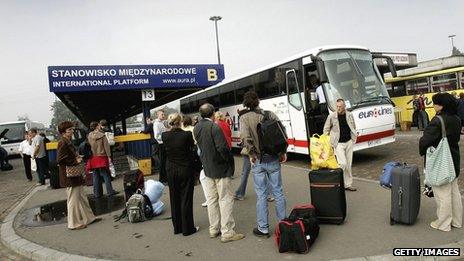
At the moment within the European Union, members have the right to work and live in any country that is part of the EU.
See Europe's full policies on work, external
If you wanted to work in a bar in Ibiza for example there's nothing stopping you. As a member of the UK you share the same right to work as any Spanish worker applying for the same job.
In certain cases the EU can set quotas to ensure the employer can't favour one nationality over another.
Outside the EU, small and medium-sized firms would be freed from regulation, meaning there could be a jobs boom.
The Bruges Group says more than 90% of the UK economy is not involved in trade with the EU, yet still has to follow the rules.
Learn abroad
The UK being out of the EU would make learning abroad much harder and travel between the UK and the rest of Europe would be considerably more difficult.
A working visa would probably be required and the quotas set in place to avoid discrimination would no longer apply.
However, fewer British jobs would go to foreign workers and the number of migrants living and working in Britain could be controlled.
Money
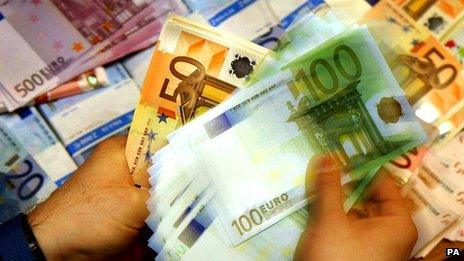
Every country in the EU gives a percentage of its GDP (gross domestic product) to the European Union. In simple terms that is the amount of money a country makes.
Last year the UK handed more than 11bn euros (£9bn) to the EU and received about 6.5bn euros (£5.5bn) back - aimed mainly at helping British farms.
If the UK ever needed extra money then the amount we gave and received would change but being outside the EU could save the UK billions of pounds in membership fees.
In theory the UK would have more money but inside Europe, there is a free trade agreement.
Being outside could cost the UK more for importing and exporting goods within the EU.
Education
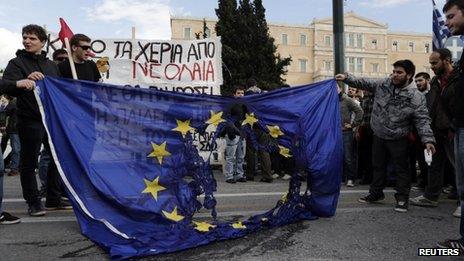
In 2007 the European Union set aside 7bn euros (£6bn) for a Lifelong Learning Programme, external.
It funds a range of projects from exchanges, study visits and networking for both teachers and students and essentially pays for some people to learn abroad.
The UK would no longer be entitled to that project if the UK left the European Union and if British nationals wanted to learn in a European school they would have to pay the full amount.
Follow @BBCNewsbeat , externalon Twitter
- Published13 May 2013
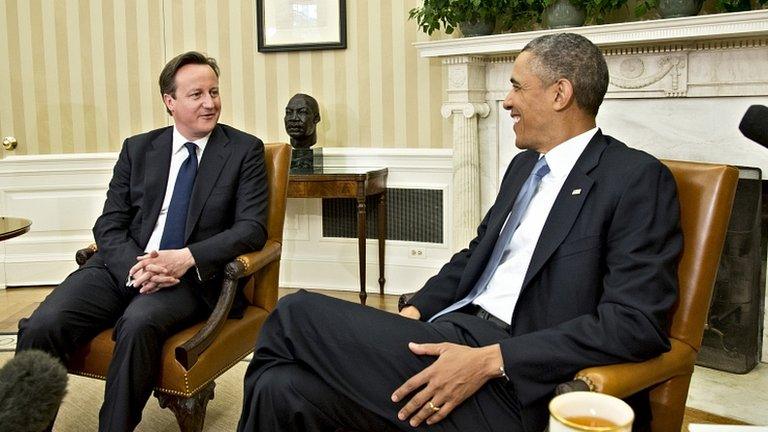
- Published8 February 2013
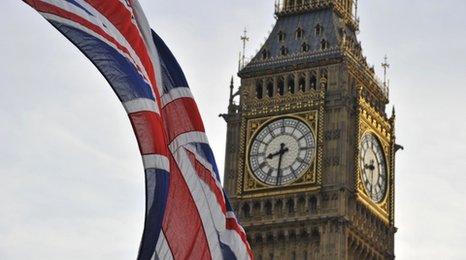
- Published23 January 2013
